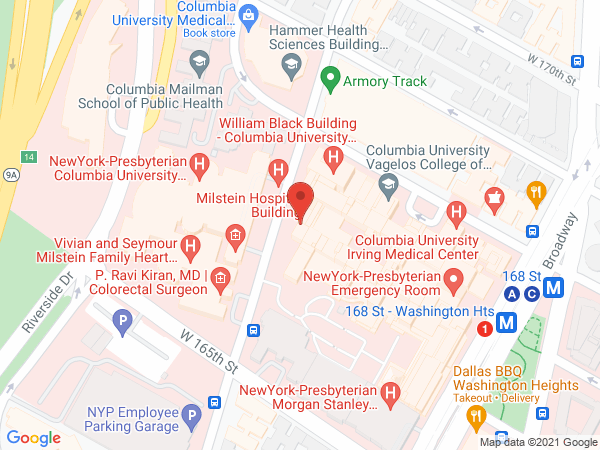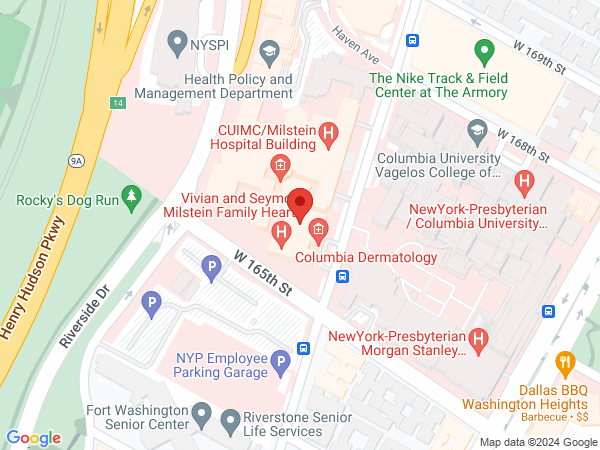Arnold S Han, MD
Overview
Areas of Expertise / Conditions Treated
- Celiac Disease
- Colon Cancer Screening
- Digestive System Disorder
- Gastrointestinal Disease
- General Gastroenterology
Academic Appointments
- Assistant Professor of Medicine
Hospital Affiliations
- NewYork-Presbyterian / Columbia University Irving Medical Center
Gender
- Male
Schedule an Appointment
Virtual Visits/Telehealth
Virtual Visits allow you to connect with your provider from the comfort, convenience, and safety of your own home.
Phone Appointments
Connect Patient Portal
For existing patients, login to make an appointment, view documentation or contact your care provider.
Location(s)
Insurance Accepted
Aetna
- Aetna Signature Administrators
- EPO
- HMO
- Medicare Managed Care
- NYP Employee Plan
- NY Signature
- POS
- PPO
- Student Health
Affinity Health Plan
- Essential Plan
- Medicaid Managed Care
AgeWell
- Medicare Managed Care
- Special Needs
Amida Care
- Special Needs
Cigna
- EPO
- Great West (National)
- HMO
- Medicare Managed Care
- POS
- PPO
Emblem/GHI
- Medicare Managed Care
- PPO
Emblem/HIP
- ConnectiCare
- EPO
- Essential Plan
- HMO
- Medicaid Managed Care
- Medicare Managed Care
- POS
- PPO
- Select Care (Exchange)
- Vytra
Empire Blue Cross/Blue Shield
- EPO
- HMO
- Medicare Managed Care
- PPO
Empire Blue Cross Blue Shield HealthPlus
- Child/Family Health Plus
- Essential Plan
- Medicaid Managed Care
Fidelis Care
- Child/Family Health Plus
- Essential Plan
- Medicaid Managed Care
- Medicare Managed Care
Healthfirst
- Child/Family Health Plus
- Leaf (Exchange)
- Medicaid Managed Care
- Medicare Managed Care
Local 1199
- Local 1199
MagnaCare (National)
- MagnaCare
Medicare
- Railroad
- Traditional Medicare
Multiplan
- Multiplan
MVP Health Care
- Child/Family Health Plus
- Essential Plan
- HMO
- Medicaid Managed Care
Quality Health Management
- Quality Health Management
RiverSpring
- Special Needs
UnitedHealthcare
- Compass (Exchange)
- Empire Plan
- HMO
- Medicaid (Community Plan)
- Medicare Managed Care
- Oxford Freedom
- Oxford HMO
- Oxford Liberty
- POS
- PPO
VNSNY CHOICE
- Medicare Managed Care
- SelectHealth
- Special Needs
WellCare
- Medicaid Managed Care
- Medicare Managed Care
World Trade Center Health Plan
- World Trade Center Health Plan
Credentials & Experience
Education & Training
- MD, PhD, Mount Sinai School of Medicine
- Internship: Stanford University Hospital and Clinics
- Residency: Stanford University Hospital and Clinics
- Fellowship: Stanford University Hospital and Clinics
Board Certifications
- Internal Medicine
- Gastroenterology
Research
Our research investigates the function of T cells as they pertain to human diseases, including cancer and autoimmunity.
We have recently developed technology than enables determination of T-cell antigen receptor (TCR) sequence and high-dimensional (> 30 parameters) functional phenotype with high accuracy and efficiency from single T cells. Pairing TCR sequence information with high-dimensional phenotypic analysis is particularly powerful in the analysis of T cells, which are exceptionally diverse. In addition to the theoretical TCR repertoire diversity of 1015, T cells can assume diverse pro-inflammatory and regulatory functions. Our approach enables the extensive study of T cell function and also the ability to recapitulate TCRs for functional studies and therapeutic application.
We now understand that T cells are fundamentally capable of recognizing and rejecting tumors as foreign tissue, and tumors grow because they have devised mechanisms of escaping T cell immunity. Recently, therapies specifically designed to incite anti-tumor T cell activity have shown enormous promise in cancer treatment. Our research investigates the function of T cells in human cancer and in mouse models with ultimate aim of identifying novel avenues of therapy. We are addressing the following questions:
1) Of the diverse types of T cells present in tumors, which T cells have potential in controlling cancer and which T cells might actually be promoting cancer growth?
2) How does the TCR repertoire of tumor infiltrating T cells compare with peripheral blood and normal tissue?
3) How do tumor-infiltrating T cells evolve over time?
4) What are the antigens driving T cells in cancer?
5) How does immunotherapy affect the landscape and function of T cells, and what are T cell determinants of responsiveness to immunotherapy?
6) Can we apply our technology to design effective strategies for adoptive T cell immunotherapy?
Like cancer, autoimmune diseases are also diseases of T cell tolerance. Our laboratory studies autoimmunity through the study of celiac disease, a highly prevalent autoimmune disease that shares similar genetic and immunologic features with other autoimmune diseases. Aside from its clinical impact, celiac disease is unique among autoimmune diseases in that the triggering antigen, dietary gluten, is known and its exposure can be controlled through diet. Thus, celiac disease provides a unique opportunity to study and understand human autoimmunity. We are investigating T cell responses within celiac disease through the study of blood and tissue from human volunteers. We have previously shown that CD8+ T cells in celiac disease, which mediate tissue damage, are likely responding to gluten ingestion in an antigen-specific manner, even though CD8+ T cells are not believed to directly recognize gluten peptides. Our research on celiac disease is focused on understanding how a CD4+ T cell response directed against an external antigen (dietary gluten) can enable self-tissue damage by CD8+ T cells.
I am trained as a clinical gastroenterologist and a basic scientist with expertise in immunology. I am applying my very unique training as both a basic scientist trained in immunology and a clinician trained in Internal Medicine and Gastroenterology to pursue clinically important scientific questions in tumor immunity and autoimmunity. My team investigates the function of T cells as they pertain to human diseases. We have developed and are actively developing technologies that enable the study of T cell function and specificity at a single-cell level. We are applying this analysis to the study of T cells in cancer and autoimmune diseases. Our approach enables the extensive study of T cell function and also the ability to recapitulate TCRs for functional studies and therapeutic application.
Selected Publications
Li Y, Teteloshvili N, Tan S, Rao S, Han A, Yang YG, Creusot RJ. Humanized Mice Reveal New Insights Into the Thymic Selection of Human Autoreactive CD8+ T Cells. Front Immunol 2019 10:63doi: 10.3389/fimmu.2019.00063. PMID: 30778347
Gee MH*, Han A*, Lofgren SM, Beausang JF, Mendoza JL, Birnbaum ME, Bethune MT, Fischer S, Yang X, Gomez-Eerland R, Bingham DB, Sibener LV, Fernandes RA, Velasco A, Baltimore D, Schumacher TN, Khatri P, Quake SR, Davis MM, Garcia KC. Antigen Identification for Orphan T Cell Receptors Expressed on Tumor-Infiltrating Lymphocytes. Cell 2018; 172(3):549-563. PMID: 29275860 *equal contribution
Glanville J, Huang H, Nau A, Hatton O, Wagar LE, Rubelt F, Ji X, Han A, Krams SM, Pettus C, Haas N, Arlehamn CSL, Sette A, Boyd SD, Scriba TJ, Martinez OM, Davis MM. Identifying specificity groups in the T cell receptor repertoire. Nature 2017; 547(7661):94-98. PMID: 28636589
For a complete list of publications, please visit PubMed.gov

